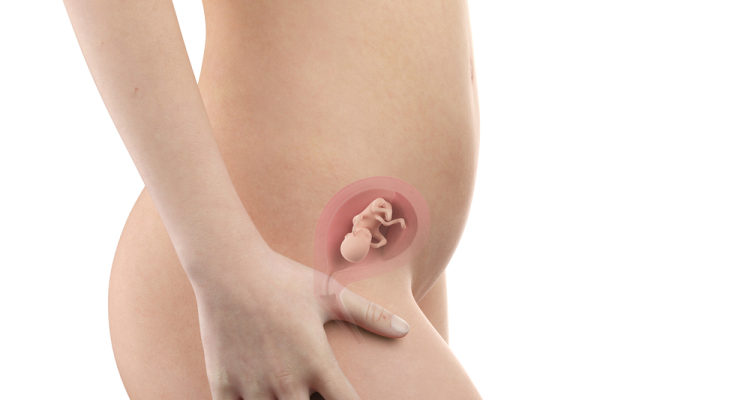
Main content:
Development of 15 weeks fetus
A change in the mother's body at 15 weeks of pregnancy
Doctor's advice about 15 week pregnancy
Maternal and fetal health at 15 weeks
Development of 15 weeks fetus
How does a 15-week fetus develop?
The 15-week fetus is now the size of an apple, weighs about 75g and is 10 cm long from head to toe.
Witnessing the growth of the fetus , parents must be amazed by the softness of their baby's skin. At this time, the baby's skin is constantly growing, thin and translucent to the point that the mother can see the blood vessels inside. Your baby's hair and eyebrows continue to grow. Your baby's ears will now be very close to the correct position later, even though they are located slightly lower above the baby's head.
Inside, your baby's skeletal system is also continuing to develop. Your baby's muscles are also developing constantly and he can do a lot of movements with his head, mouth, hands, wrists, hands, legs and feet.
A change in the mother's body at 15 weeks of pregnancy
15 weeks pregnant, how does mother's body change?
Up to this point, do you really believe you are pregnant? Many women say that it is not until they have to switch from jeans to pregnancy and find their tummy bulging that they truly realize that they are pregnant. For many people, this thought of pregnancy is both rewarding and frightening.
Rest assured! It is very normal that a mother's mood swings suddenly. Even the most resourceful women say that 15-week pregnancies make them forgetful, clumsy and unable to focus. Hormones in the body are responsible for this phenomenon. Try to limit the situations that put you under stress and gradually get used to your own psychological changes ! Remember, these changes are short-lived.
What are the things you need to pay attention to?
The 15-week-old fetus, this stage emotionally, pregnant mothers can experience:
Fluttering mood swings: which may include feelings of discomfort. You can also cry often for unknown reasons
Become happy or anxious when she begins to feel she is pregnant
Feeling frustrated and tired when mom can't fit in normal clothes but her belly isn't big enough to wear maternity clothes
Feeling that her mind is always vague and unable to concentrate: she will be dull, forgetful, or drop objects and it is difficult to concentrate.
Doctor's advice about 15 week pregnancy
What should mom discuss with the doctor?
It is entirely possible for parents to pass on their allergies to their newborn baby if they also have allergies. Some studies show that mothers with allergies or eating high-risk foods (such as peanuts and dairy products) while breastfeeding can transmit allergies. the foods they eat to their children. You also need to know that your baby will not necessarily have the same allergenic device as their parents.
The good news for 15-week pregnant mothers who love to eat peanut butter: it's that the studies on this connection have yet to come to a strong conclusion. However, if you have ever had allergies, please consult your doctor about restricting your diet while you are pregnant or breastfeeding.
What tests do you need to know?
When visiting this month, the doctor will monitor the fetal development during the 15th week, confirm the date of labor and see if the nun's health has any problems. The doctor can measure the size of the mother 's uterus to determine the age of the baby. To find the tip of the uterus, the doctor may gently touch and press on the mother's abdomen and measure from that point down the front of the pubic bone.
Maternal and fetal health at 15 weeks
What do you need to know to ensure safety during pregnancy?
1. Oral health
You are in the 15th week of pregnancy and want to have teeth? Be aware that pregnancy hormones are not good for your gums. The gums, like other mucous membranes on the mother's body, are prone to swelling, inflammation and a tendency to bleed easily. These hormones also make the gums more susceptible to plaque and bacteria, or worse, can lead to gingivitis, even cavities. For oral care while pregnant, mothers should:
Floss and brush your teeth regularly. Use a fluoride toothpaste to protect the mother's teeth from tooth decay. Cleaning your tongue while brushing your teeth will also help eliminate bacteria in the palate and make mother's breath cooler.
Consult a dentist to reduce bacteria and plaque, and protect gums and teeth.
2. Eat raw oysters
Although eating raw oysters is usually safe, this dish can carry the bacteria Vibrio vulnificus and can lead to serious illness or even death in hypersensitive individuals. But in reality, there's no way to know if these bacteria are present in mother's raw oysters. Therefore, it is best to avoid raw oysters, only eating oysters that are cooked under high heat to eliminate bacteria during pregnancy.












